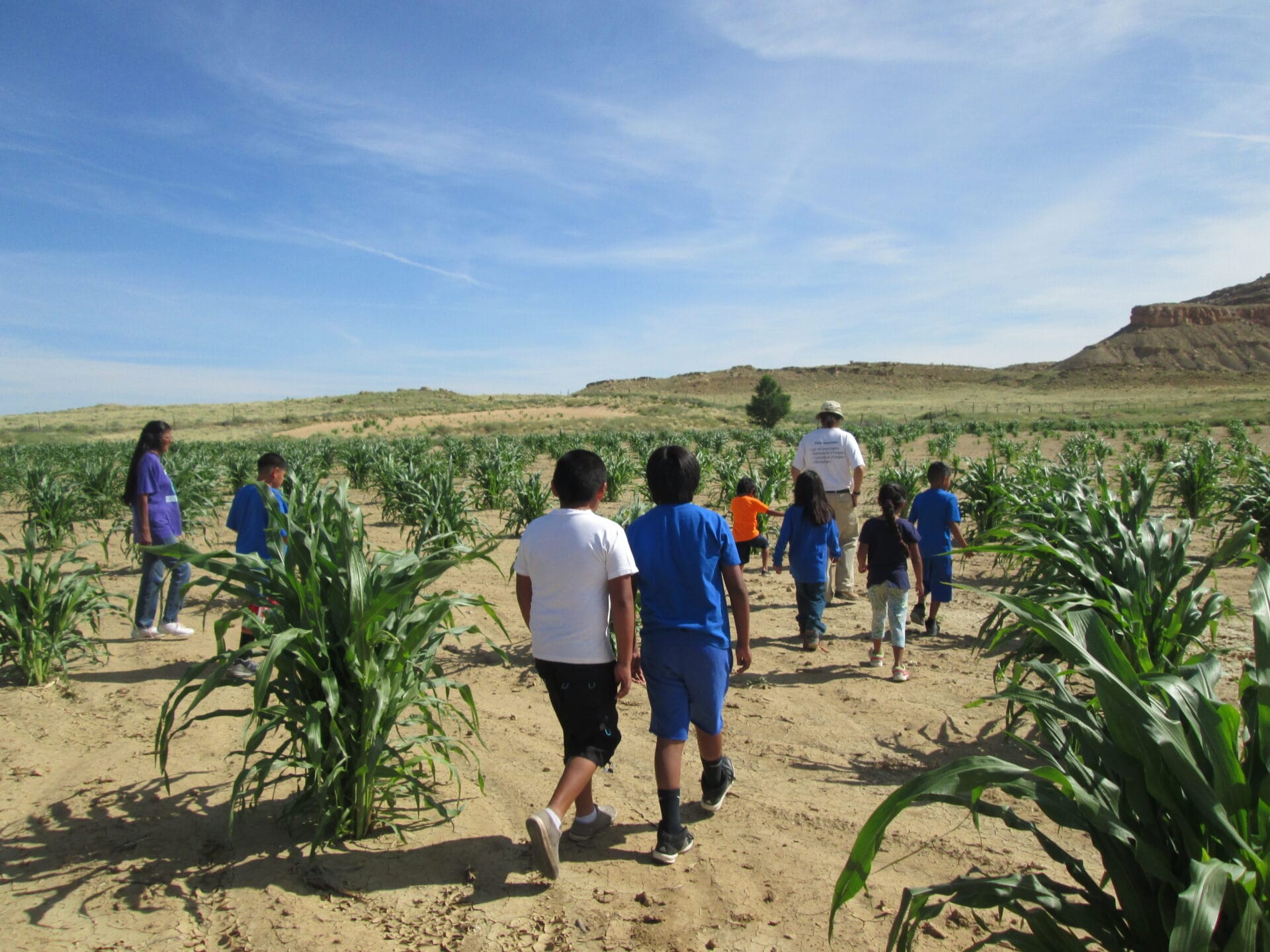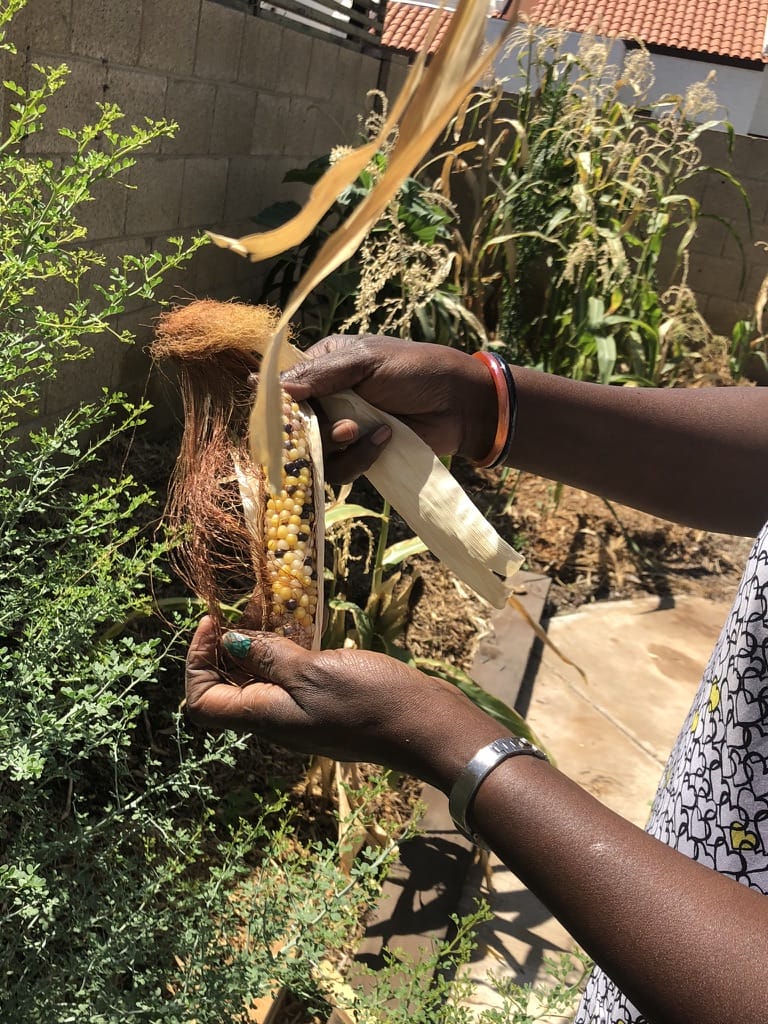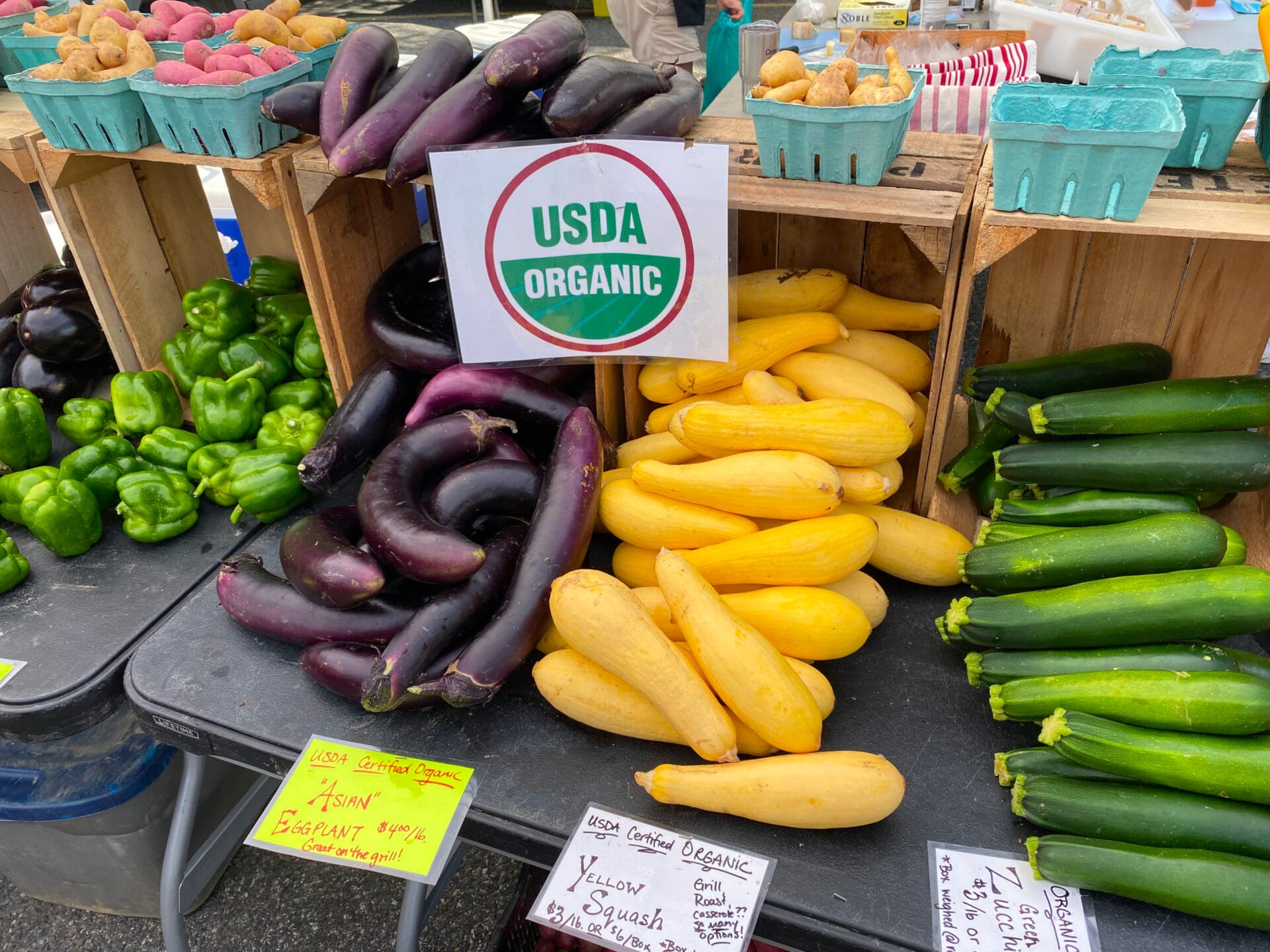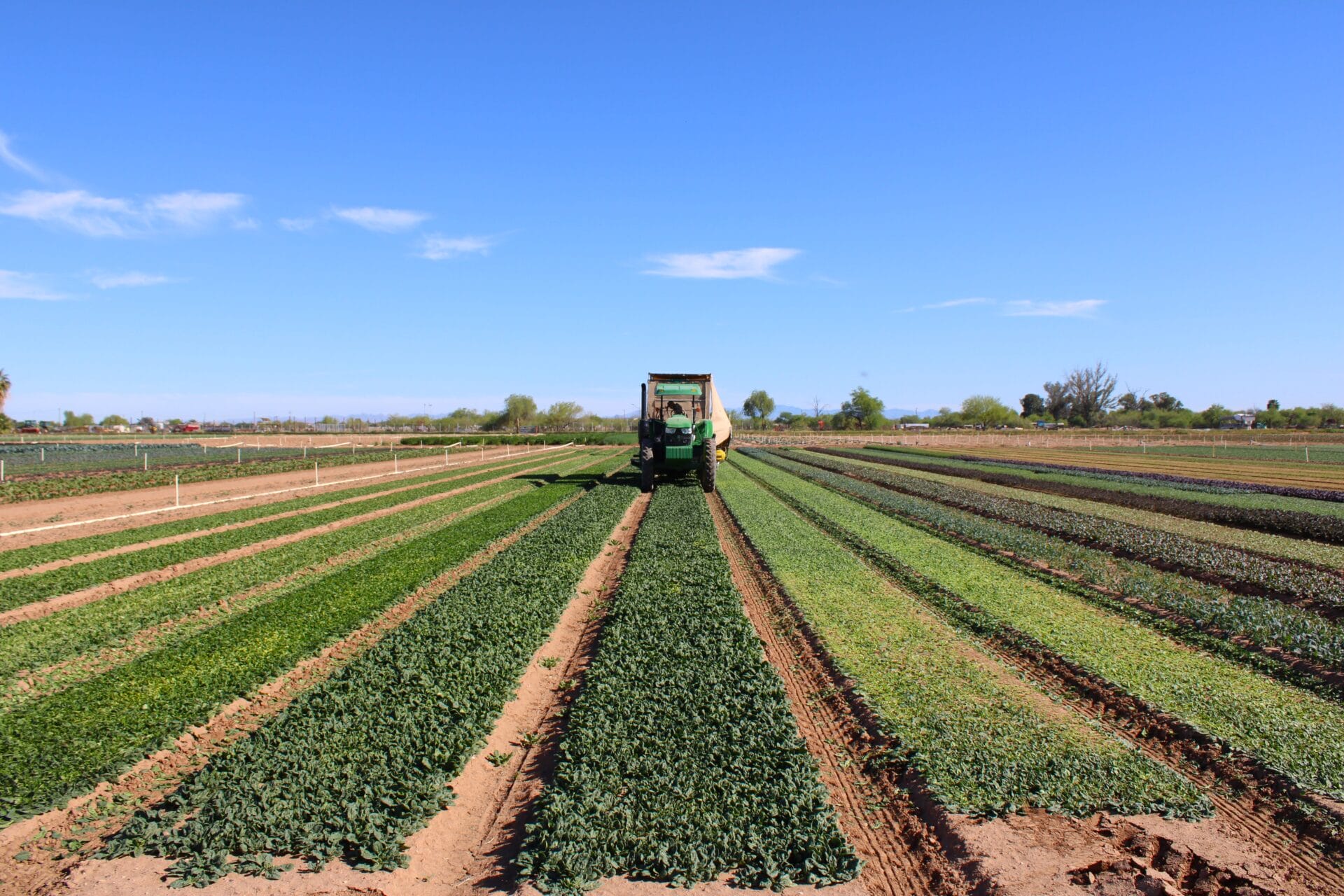
Arizona food systems
Being based in Arizona, it’s only natural that supporting our home state’s food system is a top priority.
Arizona’s food system faces unique challenges due to the state’s arid climate and water scarcity. However, Arizona also presents opportunities for innovative approaches to promote sustainable food production and distribution. The state’s resilient ecosystems and extensive Indigenous knowledge offer great potential for sustainable agriculture and the preservation of biodiversity.
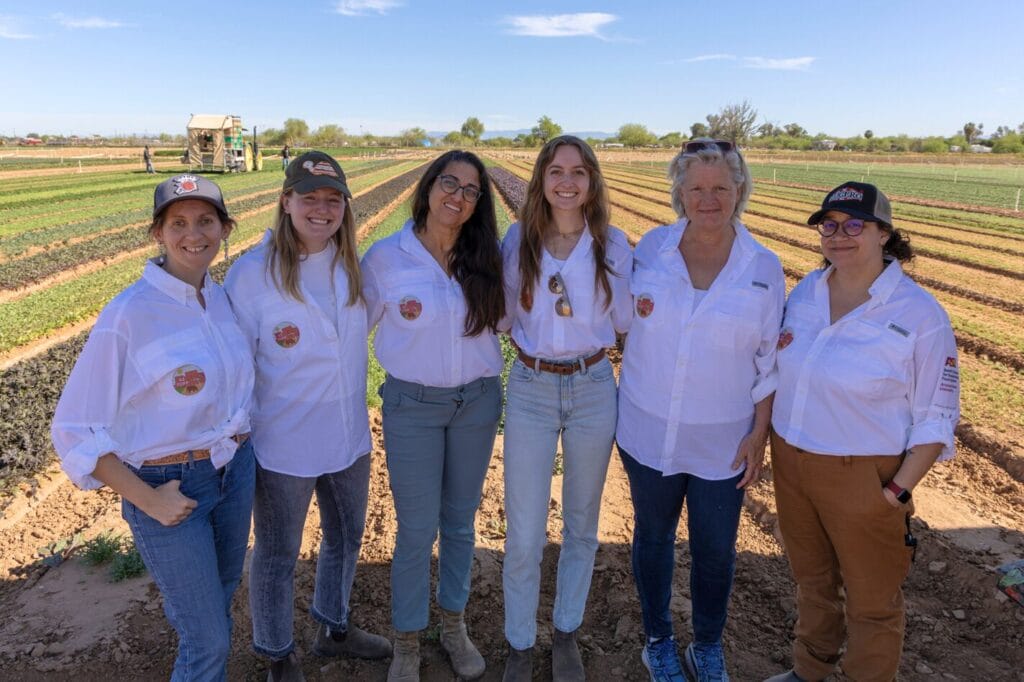
Uplifting Arizona food systems at the Swette Center

Urban agriculture research
The planet is urbanizing and with it, interest in urban agriculture is growing. Our Grow Local Tempe project, funded through a USDA Urban Agriculture and Innovative Production grant, was a partnership between the Swette Center and the City of Tempe to enhance sustainable and equitable development through urban agriculture. Presented as an active record of the community’s engaging spirit, preferences, and concerns, our report charts a path forward to continue Tempe and the community’s efforts towards a vibrant and flourishing urban agriculture landscape.
Additionally, we worked with a group of graduate students to create and maintain a map referencing local food assets for urban agriculture in the city of Tempe.
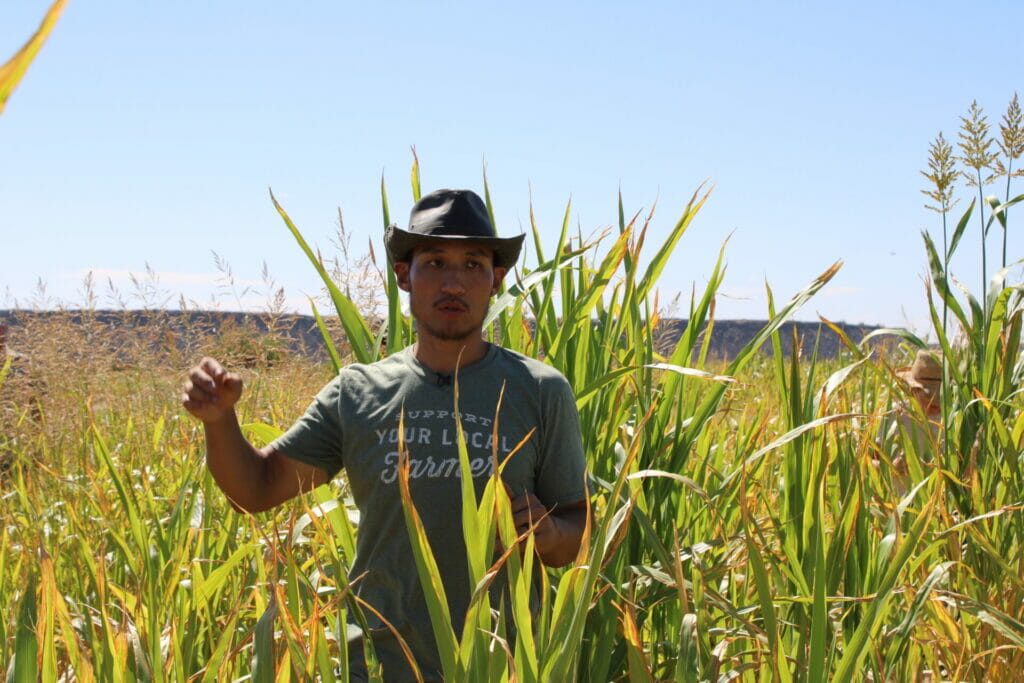
Transition to Organic Partnership Program
As part of USDA’s $100 million dollar Transition to Organic Partnership Program (TOPP), the Swette Center for Sustainable Food Systems is serving as the state lead to support farmers and handlers across Arizona as they transition to organic farming systems.
This is a nation-wide collaboration led by the National Organic Program to build programs specifically designed for farmers transitioning to organic practices, including farmer-to-farmer mentorship, technical assistance, workforce development and community building initiatives.
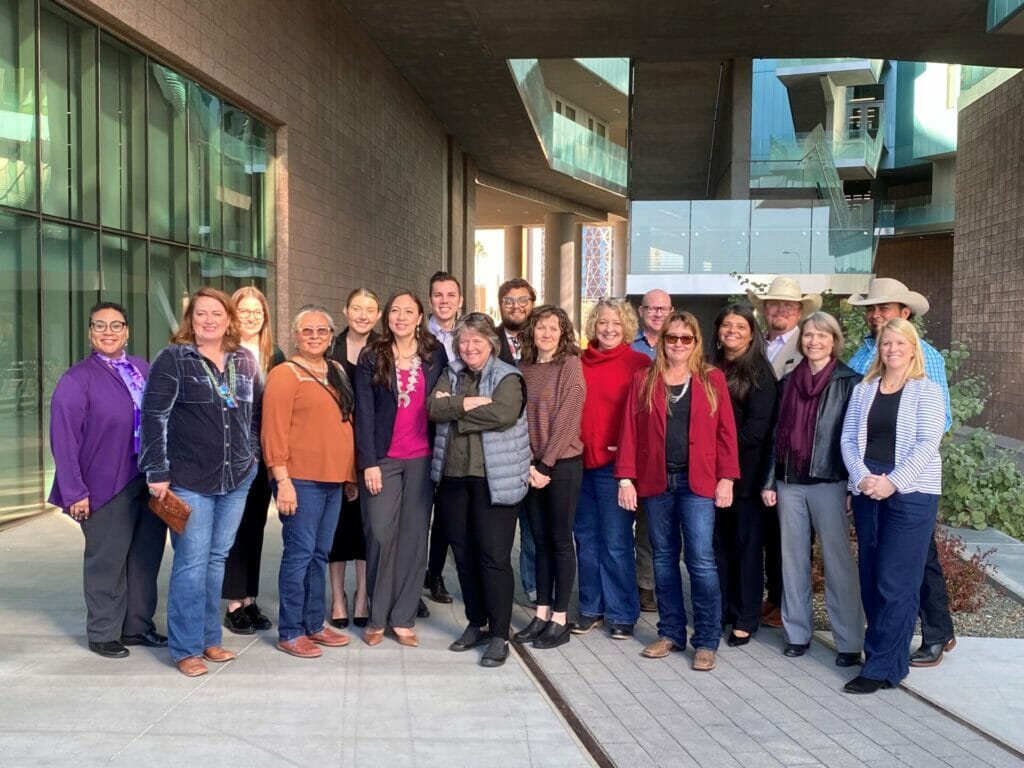
Climate-SMART Agriculture pilot project
The Climate-SMART (Specific Management for Arizona Resilience and Transformation) Agriculture pilot project is a state-wide collaboration to create a program for growers in Arizona to adopt climate-smart agriculture and forestry practices. This project arose out of widespread concern about how Arizona has been particularly impacted by climate change, making climate-smart solutions in agriculture a necessary part of our state’s future.
Funded by USDA Partnerships for Climate-Smart Commodities, this project is being led by the Arizona Association of Conservation Districts and involves 13 project partners across the state. The Swette Center has committed to creating training guides for the workshops by working with early adopters of climate-smart practices, providing technical support on biologicals and facilitating stakeholder engagement for the workshops.
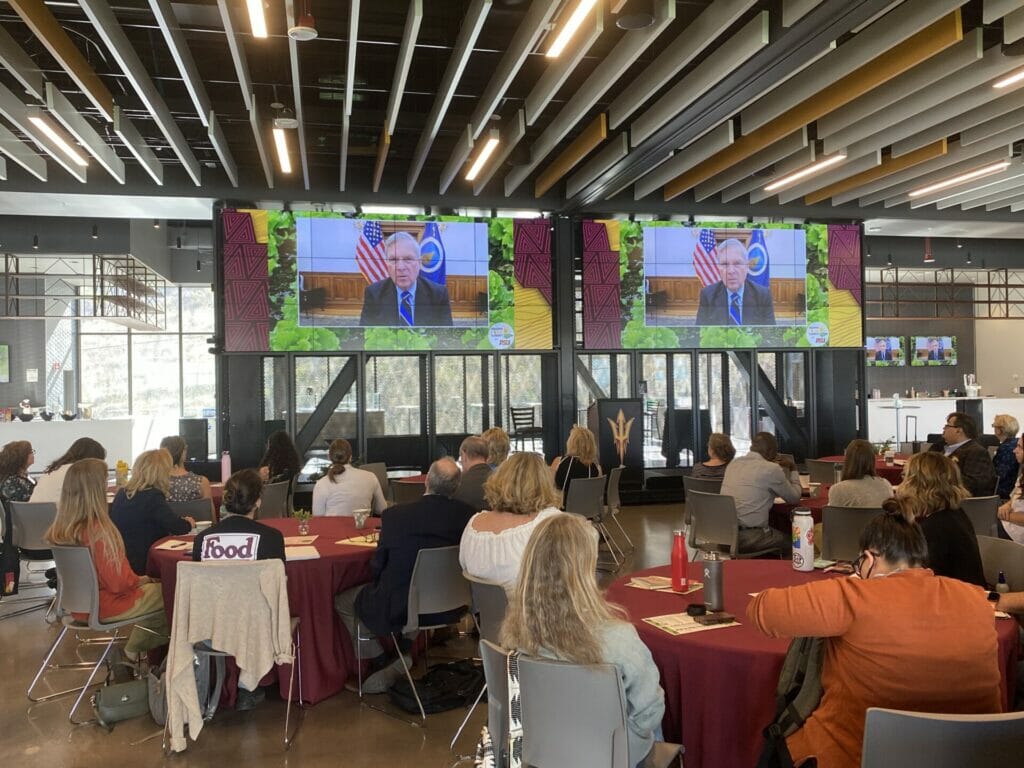
4th Annual Arizona Food Summit
Featuring 26 speakers and over 200 Arizonans in attendance – nearly 140 in person – the Arizona Department of Agriculture and Swette Center for Sustainable Food Systems co-hosted the 4th Annual Arizona Food Summit for two days of information sharing and discussion on how best to move forward on creating a sustainable, healthy food system for all Arizonans.
The days were packed with speakers from across the food system spectrum. The event opened with US Secretary of Agriculture Tom Vilsack emphasizing the need to link food security with nutrition security and to better translate science to help people make informed choices. Vilsack further challenged Arizonans to engage, bring young people into agriculture and food work, support our local farmers and attend to nutrition security.
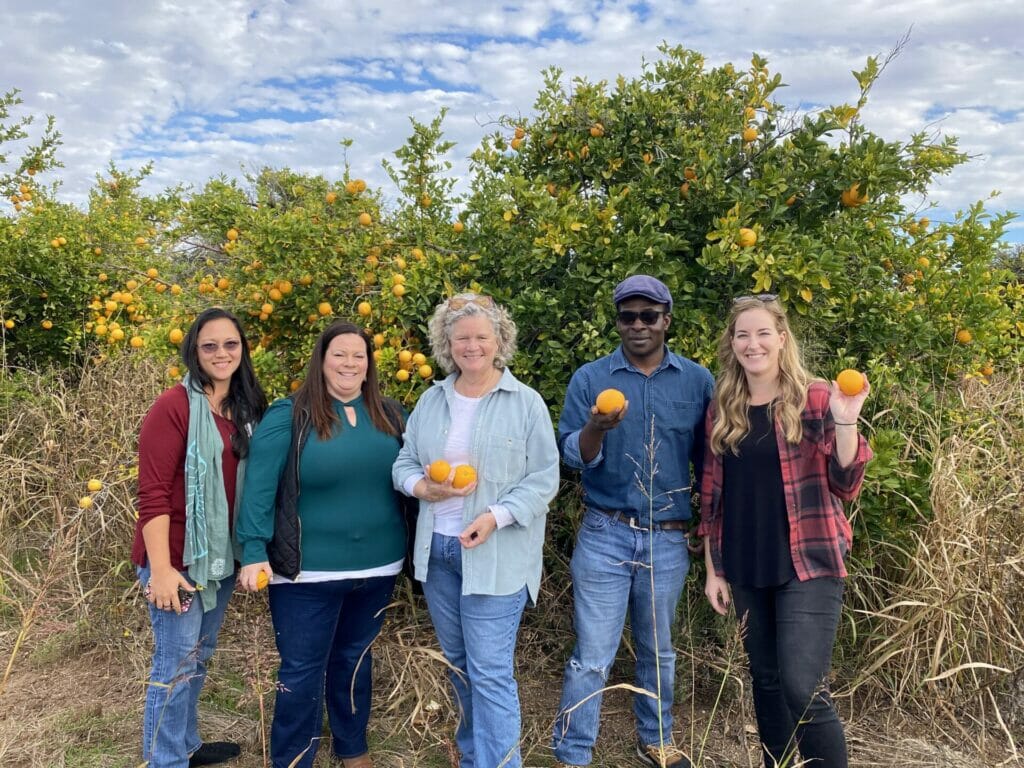
Immersive visits and blog highlights
Each year, we take our graduate students across Arizona for an immersive food and farm experience to learn directly from farmers, ranchers, food processors, hunger relief workers, government officials and food entrepreneurs. The bottom-line lesson of the class: one should never design food policy absent conversations with the people who produce our food.
To encourage thoughtful reflection, students are assigned responsibility for writing a short article about one of the meetings during the immersive. These “blogs” are posted on the Swette Center website and shared via social media. Collectively, through these blogs, the students share with the public their new insight into Arizona’s food system and appreciation for all that it takes to put food on the table.
Related research priorities
-

Empowering Indigenous foodways
Indigenous foodways hold immense importance as they represent the culmination of centuries of wisdom, culture and sustainable practices. They are the embodiment of indigenous communities’ deep connection to their lands, traditional knowledge and ancestral heritage. By preserving and revitalizing indigenous foodways, we aim to honor and celebrate the cultural diversity and resilience of indigenous peoples.
-

The power of deliciousness
The power of deliciousness refers to the way food and beverages evoke a strong sense of pleasure and satisfaction when consumed. It is a subjective and sensory experience that combines various factors, such as taste, aroma, texture and presentation, to create a pleasurable sensation for the person enjoying the food.
